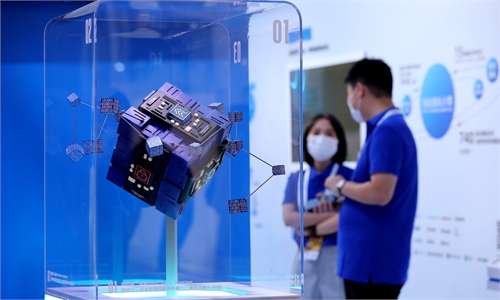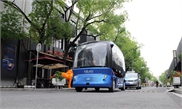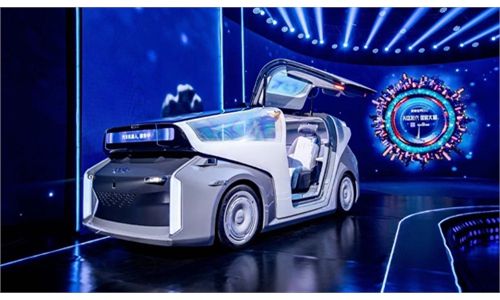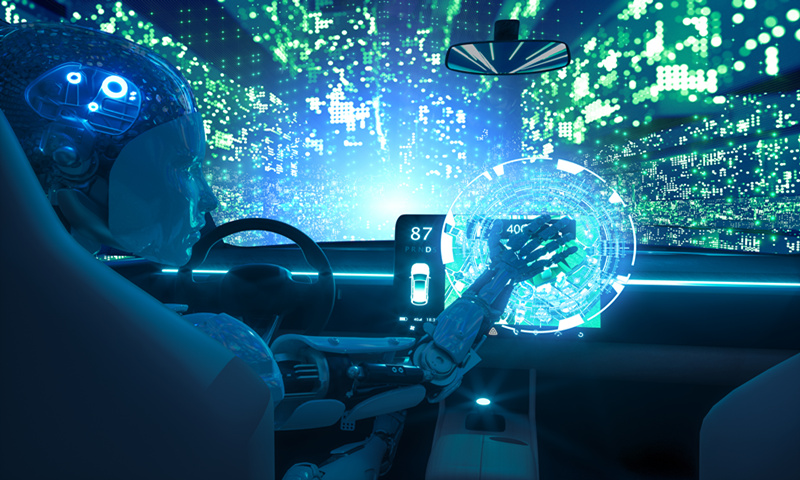
A concept image of a self-driving vehicle powered by artificial intelligence Illustration: VCG
The Consumer Electronics Show (CES) kicked off in Las Vegas on Wednesday, with Chinese firms showing off their latest technologies and products related to self-driving, an emerging segment of transportation and one of the focuses of the CES 2022.
RoboSense, a leading smart LiDAR sensor provider based in Shenzhen, South China's Guangdong Province, will display cutting-edge autonomous driving (AD) awareness system-related products at the CES 2022, including RS-LiDAR-M1 - the world's first mass-produced automotive grade solid-state LiDAR - and the RS-Helios-5515, a new customized 32-line LiDAR first carried by Alibaba's logistics robot Xiaomanlv, the company told the Global Times on Wednesday.
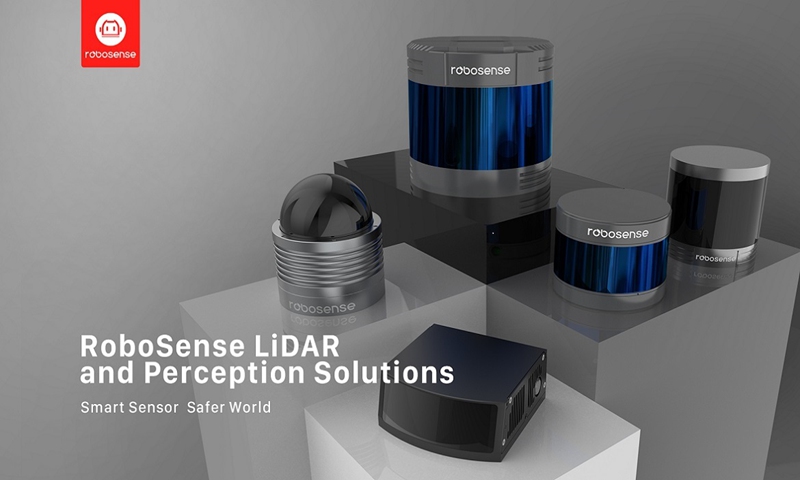
LiDAR solution for autonomous driving of RoboSense showcased at CES 2022 Photo: courtesy of RoboSense
LiDAR sensors, which serve as the eyes of cars by using lights to detect objects around vehicles, are among the hot items at the event.
RoboSense represents 10 percent of the global automotive pre-installed market, which ranks first in China and second in the world, according to Yole Développement, a consulting company.
Throughout 2021, RoboSense won a large number of pre-installed, fixed-point project orders from automakers around the world, including BYD, GAC, WM Motor, Geely's subsidiary Zeekr, Lotus Cars and Inceptio Technology.
Another Chinese LiDAR sensor producer, Shanghai-based Hesai Technology, will also feature live demonstrations of its newest automotive-grade, hybrid solid-state LiDAR solution AT128 at the CES, the company told the Global Times.
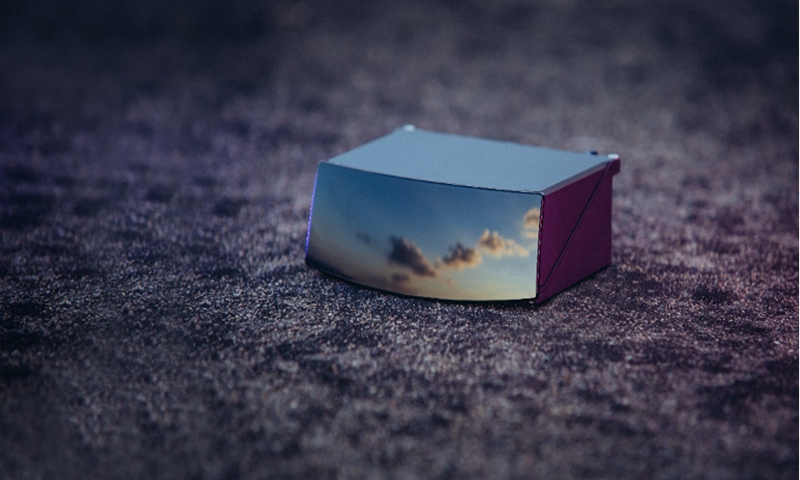
Hesai Technology's LiDAR solution for autonomous driving showcased at CES 2022 Photo: courtesy of Hesai Technology
The solution is used for robotaxis, robotrucks, advanced driving assistance systems (ADAS) and industrial applications, according to the company.
Guangzhou Asensing Technology Co, a leader in high-precision positioning technology for intelligent transportation, is gearing up to demonstrate P-BOX, a high-precision integrated navigation system, and HD-MapBox, a mapping application that integrates high-precision map data based on high-precision positioning, at the CES 2022, the company told the Global Times on Wednesday.
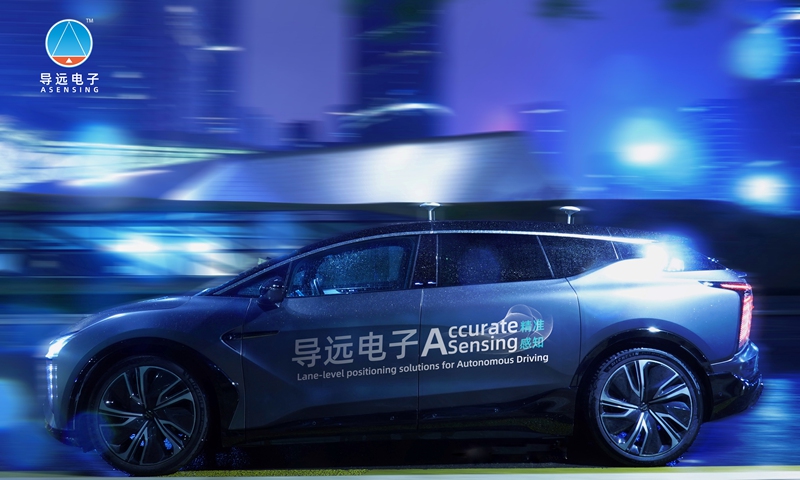
Asensing Technology, a leader in high-precision positioning technology for intelligent transportation Photo: courtesy of Asensing Technology
Asensing Technology has been the positioning supplier of many domestic car brands with huge market shares. It is seeking to go global with its first appearance at CES this year, in the hope of displaying its industry-leading technologies and developing international automobile partners, said the company.
Apart from crucial technological products of AD, automakers like TuSimple will bring its self-driving semi, freight and long-haul trucks to the CES.
The Global Times found that the Chinese AD firms attending CES are mainly engaged in LiDAR, ADAS and positioning systems, and there are almost no chip companies.
The main reason for the absence of Chinese chip companies may be related to the epidemic, but the US blacklist is also an important reason, Zhang Xiaorong, director of the Beijing-based Cutting-Edge Technology Research Institute, told the Global Times on Wednesday.
"Almost all our chip companies that can be named have been blocked by the US," he noted.
But Zhang said such an absence has little impact on the auto industry, as chips used in autos are mainly based on 28-nanometer and 45-nanometer processes, and these are among the types of chips that can be mass-produced in China.
"Chips are in short supply. Chip firms will get orders even if they do not show up at the CES," said Zhang.
Other smart transportation products will also show up at the CES. For instance, Hangzhou-based OKAI will showcase safe, smart and fun e-bikes, e-scooters and smart accessories in its special booth, OKAI told the Global Times on Tuesday.
